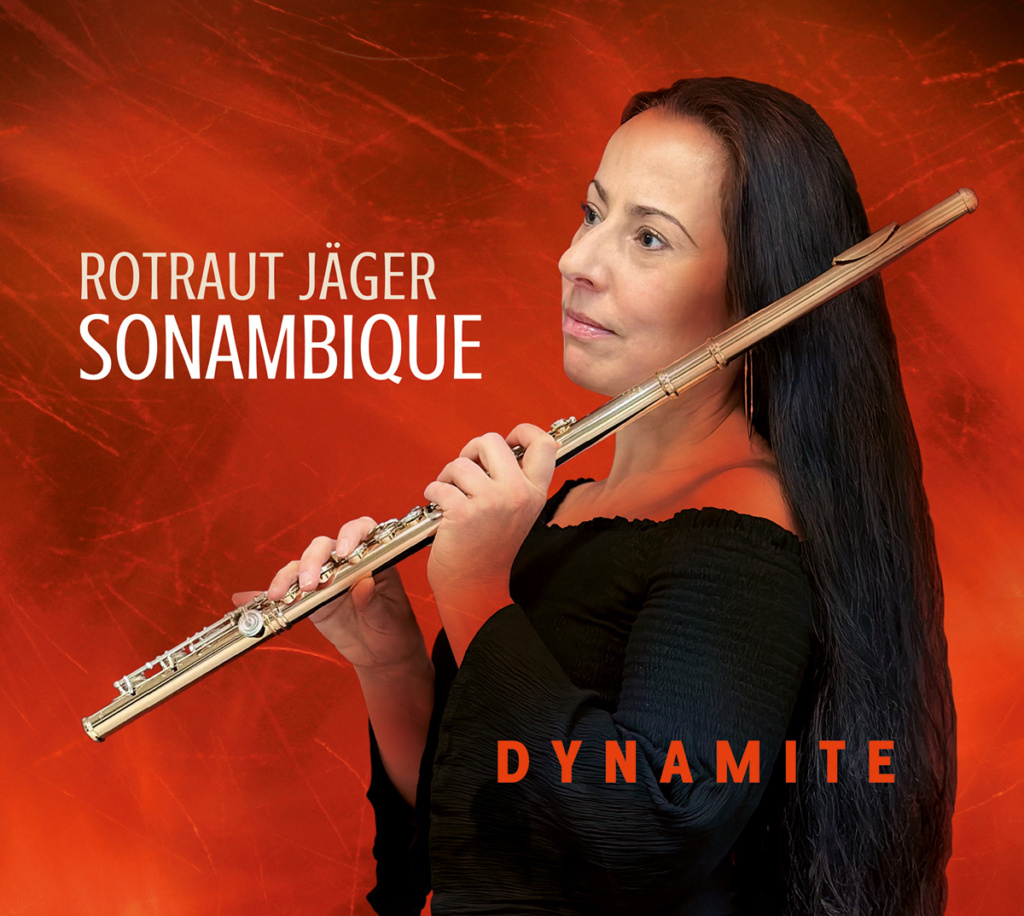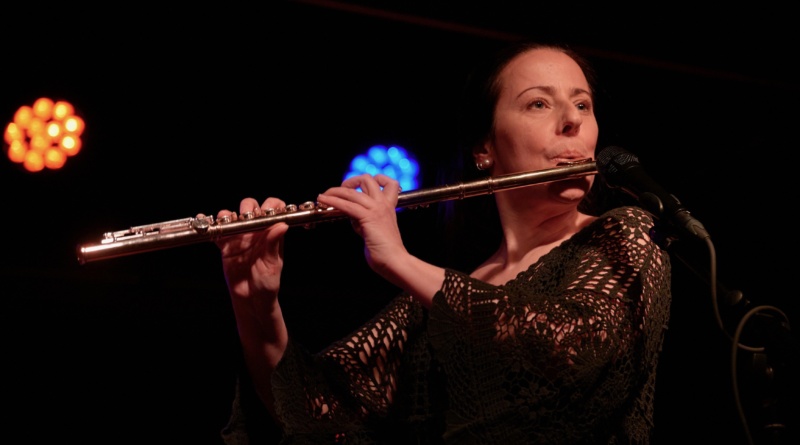New Album Feature: Rotraut Jäger’s “Dynamite”
The flute ... it is a very special instrument. Jazz history is not rich in musicians who specialized in the flute alone; most also played the saxophone, clarinet, or other woodwind instruments. The German/Swiss Rotraut Jäger, who lives in Zurich, is a flutist with a passion. On her second album, "Dynamite," she manages the remarkable feat of calibrating herself completely to the flute and yet not recording a flute album. The focus of her music, which is refreshing in every respect, is, without exception, the respective song - the melody, the groove, the mood, and the mental environment in which the song was created. With a relaxedness that is rarely heard in jazz, she simply plays. And in this case, playing is to be taken literally. She plays her instruments in a completely uninhibited way.
Instruments? Doesn't Rotraut Jäger only play the flute? Yes, but like the saxophone, the term flute covers a whole family of instruments that are used here. In the end, it is completely irrelevant to the listening ear whether Rotraut Jäger plays C, bass, alto, piccolo, or the unpredictable bansuri flute because the album is not an advertising soundtrack for different types of flute. But with a fine feeling for contexts and sound associations, the German/Swiss finds the right timbre and, thus, the appropriate instrument for every mood, every ambiance, and every context. When she lovingly talks about her flutes, it sounds like she is talking about family members. "The C flute is very flexible; I can use it well for all styles. You can play groovy things on the bass flute but also express yourself very softly. That's also true of the alto flute. The lower instruments sound very good and are best suited for ballads. But you can also play them a bit more percussively. The piccolo is not exactly the most popular instrument. I had the ambition to use it in a way that would fit cool. On the other hand, the bansuri flute is a more difficult instrument because it's often a bit out of tune, and you have to be very precise with intonation. But that's what makes its timbre so appealing."

However, the charm of her record is made up of quite different components. Rotraut Jäger is a gifted storyteller. Just by playing different flutes, very different voices come into play, which act like the characters in a plot. Coming from the classical flute, the musician was also interested early on in the rock band Jethro Tull, whose band concept was dominated by a flute and played in funk and fusion bands. She has remained faithful to classical music to this day, but it is in the exchange of her experiences with diverse styles, cultures, traditions, and playing styles that she sees her chance to address a wide range of listeners who go far beyond one of the aforementioned segments.
To avoid misunderstandings: "Dynamite" is neither classical with jazz nor jazz with classical. Nor is it a jazz cake with rock cherries and ethno icing. Rotraut Jäger creates her very own universe, with a vocabulary within which she can move freely and impartially, perhaps more importantly, which imposes no conditions on the listener. As demanding and complex as her compositions are, they nevertheless sound away as easily as a fresh spring breeze. "I often think about what style or groove I want to compose a piece in," she describes the creation of her songs. "I'm very rhythmically oriented and always sit down at the piano first. That's where rhythmic patterns or motifs emerge. I record them and start improvising on them with the flute. In the process, I come up with new melodies and motifs from which I put the pieces together. I always think of a bass line to go with it."
Rotraut Jäger does not record her album alone but with her band Sonambique, which includes drummer Omar Diadji Seydi, bassist Abdourakhmane Fall, and pianist Andreas Ebenkofler. All three bring very different qualities to the table. The bassist and the drummer come from Senegal and also function as a rhythm unit outside of Sonambique. They are not only familiar with jazz but also have experience with African music as well as reggae, flamenco, or pop. Pianist Andreas Ebenkofler is also a brilliant improviser and spontaneous creator. All three bring a great passion for odd meters, which makes them virtually predestined for the flutist's compositions.
Although Rotraut Jäger herself has developed a distinctive language on her flute, and the chemistry within her band also holds all the songs together like a good bonding agent, each track on the album describes its own stylistic world. The record as a whole seems like a multi-stylistic hike, not only through manifold moods but also through a whole series of regions of this planet, without ever getting a flat global village feeling. The flutist, composer, and, in a certain way, sound color cartographer deal with her influences sensitively and subtly. "I am interested in very many styles, which I have heard on the one hand and which I have also played in various bands on the other," confesses Rotraut Jäger. "The central question is always, what music do I want to listen to myself? What interests me?"
Good thing. Because "Dynamite" is nothing less than an explosive outburst of undisguised joie de vivre that depicts life in its interaction of banal ordinariness and complexity.
